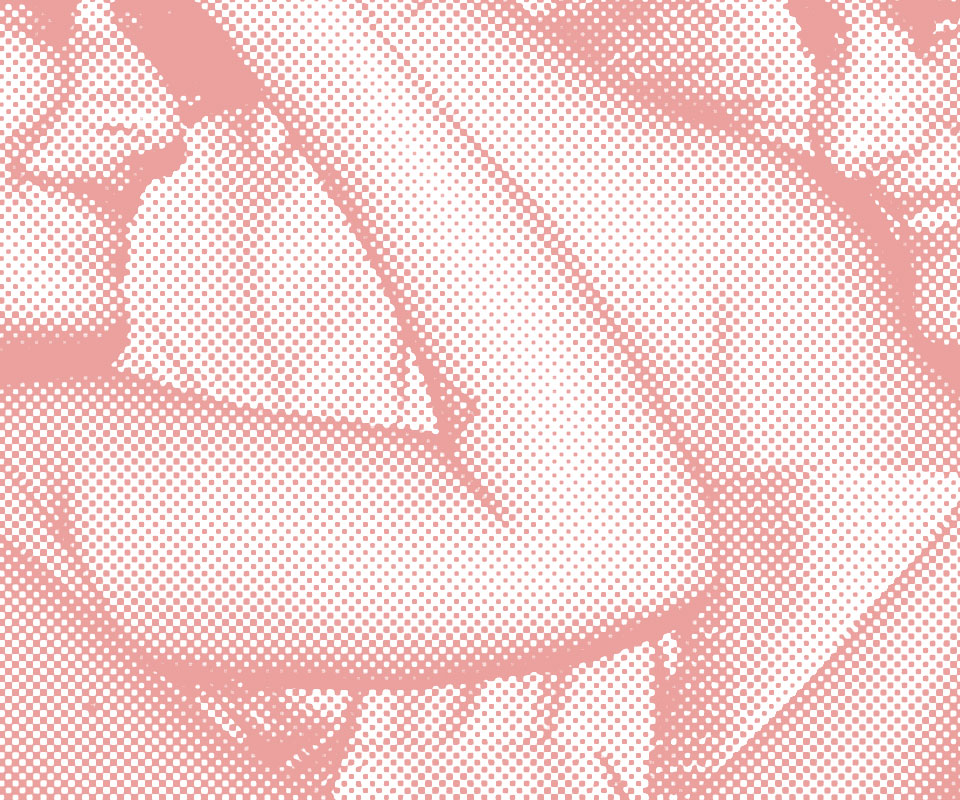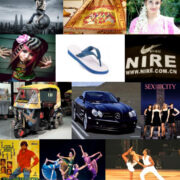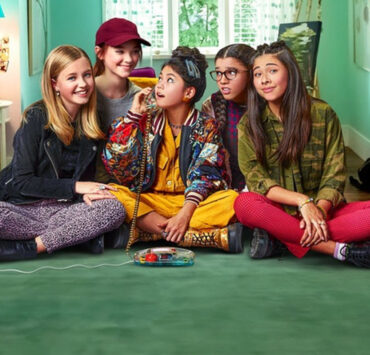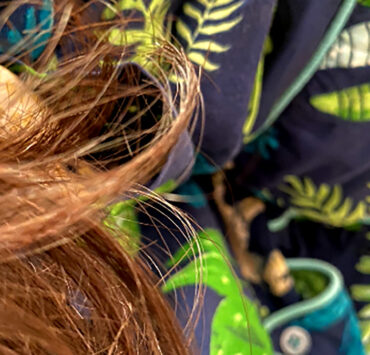I remember I was eighteen when I was first confused about my sexuality. I was in Bengaluru for an internship; I didn’t know anybody in the city, and life had immediately felt weightless and limitless.
Bengaluru in 2010 offered a certain freedom of movement, independence and self-expression that was hard to come by in Delhi’s notoriously unsafe and sexist public and private spaces. Bengaluru’s quiet, leafy suburbs provided access to more for cheaper—an attractive proposition for a student trying to be a writer and indulging in a sort of self-discovery. Nestled in my spacious one-room apartment that I’d rented on Brunton Cross Road, I decided that walking would be a good start to getting to know the city better.
I walked up and down Church Street often. Once, I found myself at the mouth of a dive bar called The Tavern, with loud roars of laughter, muffled karaoke singing, and women with tattoos, short skirts, and loud octaves collecting in throngs outside—without any male chaperones. Fascinated, I spent my evening sipping beer alone at the bar. Soon, I fell in with a group of Bengaluru-born-and-bred girls a few years older than me. A yogi, an advertising creative, and a coder. They were funny, not shy about expressing their opinions, openly affectionate about touching and kissing each other on the streets and took me in like they would a stray pup. The fact that I wasn’t “very Delhi” added to what I assume was my juvenile charm. I found myself immediately drawn to one of the girls in the group, a bike-riding Tam-Brahm covered in tattoos, cracking jokes in her Kannadiga drawl. Let’s call her A. I was smitten. We met for a coffee date the next morning at a café nearby and at some point during the course of breakfast, I kissed her outside the washroom.
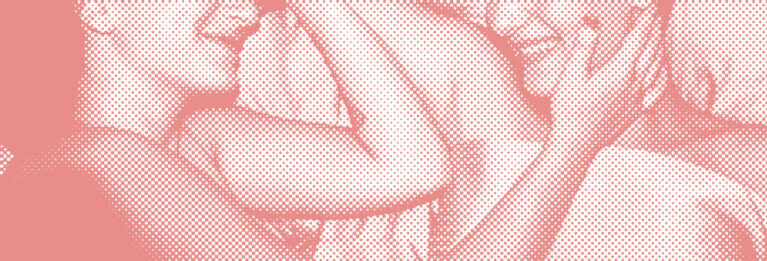
We spent the weekend arm in arm, obviously infatuated with one another, as she introduced me to the local beer and to a coterie of artistic, cool people bursting with energy and youth, and with a lack of inhibition about their identity or sexuality. I was deliriously happy and the first weekend passed in a haze of brazen kisses and sweet hand-holding. A friend from school came down to visit the same weekend and crashed with me in my apartment. While she slept in the hall, A and I took the bedroom. After A left the next morning and we sat down for a breakfast of steaming dosas and filter coffee, I noticed that my friend was reticent, churlish even. I coaxed her gently to share her thoughts with me.
“So, what, you’re a lesbian now?”
I was a bit surprised, because being swept up in the attraction, I’d never paused to consider my sexual identity directly. Yes, I’d been attracted to only men up until then, but what I felt for A was so natural and authentic that I hadn’t really paused to consider gender. “No, not really,” I’d mumbled quite unconvincingly. I hastened to reassure her—I was very much straight, I’d dated only men so far and this was an anomaly. “You know it’s not normal, right?” my friend said with an air of finality, slurping her way through her coffee.
Something shifted in A’s and my relationship after that. Afraid of the general disapproval and swayed by a majority opinion, I ended things with A quite impulsively and cruelly and dated one of her male friends for the remainder of my internship. Today, we’re friends, as she found it in her heart to forgive me, but over the years, my attraction to women has bubbled in unexpected moments and then subsided, never amounting to anything more than a friendly flirtation.
Sexuality may be experienced and expressed in a variety of ways, including thoughts, fantasies, desires, beliefs, attitudes, values, behaviors, practices, roles, and relationships. This manifests not only in biological and emotional ways, but also in sociocultural ways, which have to do with the effects of human society and culture on one’s sexuality. Human sexuality impacts, and is impacted by, cultural, political, legal, and philosophical aspects of life, and can interact with issues of morality, ethics, theology, spirituality, or religion.
As humans, our most beautiful tendencies lie in moments where we defy the norm, when we move away from what’s expected of us culturally and societally.
Mainstream media, cinema, pop-culture, and tech have long since propagated a very black-and-white idea of what sexuality can be defined as or what can be termed attractive; an idea that can fit into a perfect cookie-cutter image of what’s accepted and what isn’t. Just by virtue of seeing a certain way of being reflected in the media we consume, we’re conditioned to have a very singular idea of what the ‘standard’ is. As humans, our most beautiful tendencies lie in moments where we defy the norm, when we move away from what’s expected of us culturally and societally.
In a bid to deconstruct the myth of ‘normal’, I spoke to a few openly queer women to understand what attraction, sexuality, and all its attendants means to them.
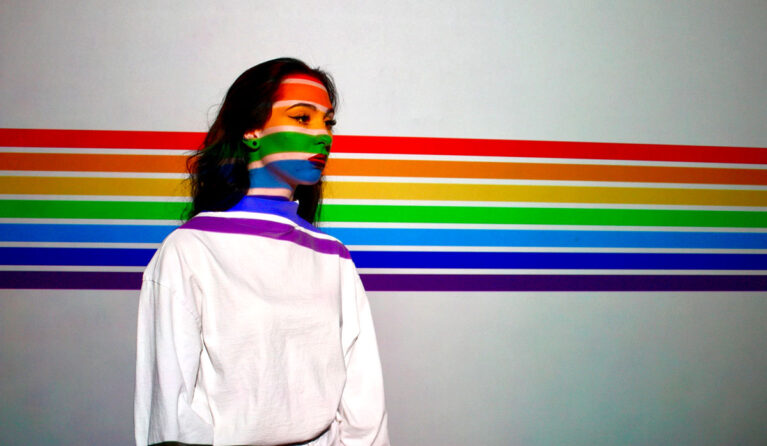
Nadia (named changed)
42, Los Angeles, U.S.A.
“I identify as bisexual/ queer [person]. For me, sexuality has to be linked to the mental realm for it to be fully functional. I find myself attracted to confidence, being challenged, being surprised, being in control and alpha without being a stereotype, if that makes any sense… someone who takes risks, someone who is well-traveled, speaks in multiple languages, someone I can learn from, humour, sarcasm, darkness, wit. Physically, I am usually drawn to older men and femme women although this is shifting and becoming more non-binary. Attraction based on ego or driven by insecurity, and attempts to control or own someone for the sake of ownership or control itself is something I consider unhealthy.
“That being said, I do think I am drawn to a little more pain in relationships (physical and mental) than what seems to be normative. I also prefer when people are a little distant, but maybe that is actually about people having their own boundaries. I definitely don’t want to be the centre of anyone’s universe. I learnt about masturbation around the age of 11-13 and consent very recently—maybe in the last few years. I think learning about masturbation when I did is healthy and I think learning about consent is necessary although I’m not into the political correctness for the sake of political correctness that comes with the Gen Z/ Millennial generation.
“These days everybody meets online so I have been on dating apps. I miss the days of meeting someone through a larger network and in real life so that there wasn’t a predetermined idea of who the person was. Things could grow more organically. Having a reference point made it safer.
“I really love the idea of open relationships and polyamory but I feel it would be very hard to deal with in real life. I do think no single person can satisfy everything another person needs.”
Somya
25, New Delhi, India
“I identify as bisexual. I’m 25, so you’d think by now I’d know what I like, but I really don’t. I thought I liked extroverts, until I met someone who was quite reserved and I found myself extremely attracted to that person. I think being attracted to someone because of their social standing is unhealthy. Society is fucked up so I’ll be damned if it let it dictate what I like, especially as a bisexual woman. That way, I’d only end up dating straight men, and that’s boring! I get that we all want to fit in and so we seek partners that will help us do that, but that just means we are helping further enforce norms.
“I’ve found myself very attracted to people that were considerably older than me. I personally think it’s strange for people to only date in their age bracket. There’s absolutely nothing stopping us from exploring relationships with people that are older/ younger as long as it’s consensual and loving. Unfortunately, I’ve had to limit my own experiences with older partners because I caved into societal pressures.
“If you grow up with a healthy understanding of consent, you often feel violated in situations everyone else considers normal.”
“I learnt about masturbation from porn. I knew it was something men did but I didn’t know women could do it too. I spent years trying to recreate versions of masturbation I saw online without any success. It took me an embarrassingly long time to get it right. It’s crazy to me that so many women are deprived of this experience.
“Fortunately, my parents instilled the concept of consent in me very young. I was able to ask for what I wanted and refuse what I didn’t want. But if you grow up with a healthy understanding of consent, you often feel violated in situations everyone else considers normal. Complaining about unwanted touches from teachers, friends, family gave me the reputation of being a prude.
“Technology has played a big part, as many of my sexual relationships have happened through dating apps. It’s easy for me to date men without the help of dating apps. It’s hard to meet other queer people because we don’t have many queer spaces in Delhi, so apps make life easier! I spent two years in New York and there I could just walk into my neighborhood queer bar/ cafe and meet interesting people.
“A majority of people require a commitment of time or fidelity from their partners to feel safe in a relationship but that’s not the case with me. I’m not sure if it’s because I can’t make those commitments myself and so I don’t ask for them, or if it’s because they are just not that important to me. Either way, so far, polyamory has worked for me. I do realize that I might feel differently in the future and I’ll cross that bridge when I get to it. I used to feel inadequate or ashamed because I didn’t feel satisfied in a monogamous relationship, but I got over that when I met other people in healthy poly relationships.”
K
32, Bengaluru, India
“I identify as bisexual/ queer, depending on who is asking. I’m attracted to personality—the way someone speaks to me, the way they approach me—it’s all wrapped up together. When we are teenagers, we were made to believe that looks are everything. While it may work in some instances, it might not hold forever, and hence, in our twenties, we want “funny, someone who can cook”. Basically, someone who is grounded. Sexual and emotional attraction goes through many changes over the years. So, today, someone who can be confident, talk with ease, and behave like they actually give a shit would be really attractive, and of course, nice hands would be good too.
“I started masturbating very early on. I’ve been molested a lot and in my pre-teenage years too. I was able to masturbate on my own because of those experiences. It’s good to know your body and what you like. It helps me communicate better with my partner and find things I enjoy. I would think everyone has that ‘a-ha’ moment—when you understand what turns you on and what doesn’t—and how you can reach that big O.
“I’ve only recently stopped being on dating apps after spending a lot of time on them. It’s because I’m very clear about what I want and dating apps aren’t it for me.”
“Consent came to me much later in life. As teenage girls, we are taught by our peers to provide pleasure and never ask for what we want. Hearing things like ‘give him a blowjob’, ‘hold his hair, pull it’, ‘he has to come first, let him come on your stomach’, was commonplace. As a young person, I said no to a lot of blowjobs, which wouldn’t go down well. The boys would always coax me back to bed, so at least they could finish.
“But over the years, thanks to my queer families, consent is spoken about loudly and kindly—it is always a part of discussions, which makes it much easier to say no. We are all, as a culture, taught to ‘shut up and adjust’ to the whims of men, while men are stuck with their peers and porn culture telling them that the way to pleasure a woman is to ‘fuck her’ and to ‘make her scream’. In queer circles, too, people have preset ideas of ‘how to be queer’—one has to fit in and yet stand apart.
“While I have been in a serious relationship for two years now, I don’t take consent lightly. We still ask for a loud and continuous yes in the present rather than depend on a yes that was said three months ago.
“I’ve only recently stopped being on dating apps after spending a lot of time on them. It’s because I’m very clear about what I want and dating apps aren’t it for me. I do feel that dating apps have changed the queer world, though there are catfishers out there who are hard to avoid. I’m also on a break currently on account of the pandemic. Technology has definitely opened me up to conversations and videos that have helped me understand my body. And, they also offer much needed respite from the heteronormative world.
“I feel like commitment is a contract between two individuals. I have commitments with my friends, while monogamy is a type of marriage that was devised for legal and religious sanctity. Works for some, doesn’t for others. No judgement. It’s polyamory that currently works for me. It took me a while to find my preferred relationship style. This way of life has helped me be a better friend and queer person, and helped me understand how my heart and mind work. If people would just read about polyamory—just a few pages—you could apply that to any relationship in your life, and trust me, you would have a more fulfilling relationship. Oh, and there is cheating even in poly relationships: if you lie and manipulate, no matter what type of relationship you are in, it is cheating. Now, I realise that no one belongs to me and I don’t belong to anyone. We are all making choices to be with the people we want to be with—friends, parents, dogs, cats, lovers. We also have the choice to leave. Although, without a commitment between my partner and I, I wouldn’t be able to be poly at all.”
Priyanka
21, Mumbai, India
“I normally say I’m queer or bisexual because I’m not fully sure of how I want to define it. I think I’m attracted to androgyny—essentially soft boys who treat me like shit and also butch women who treat me like shit and everything in between. I think collarbones are attractive. I think being able to have a laugh and just having a very bleakly intelligent conversation with a person is sexually attractive. I think the need for both parties to be intoxicated before having sex is attractive. People with tattoos, piercings, and coloured hair are very attractive. People who wear glasses for some reason. My expectations aren’t too high. A natural affinity for B.D.S.M. is great, although I feel like a lot of people pretend and I can see through that.
“I would categorise fucking my ex as unhealthy attraction. Something I very often contemplate doing. Fucking people who look like ur ex? Something I’m definitely doing. I think seeking out sexual relationships that put you in the same box or context as a past relationship so that you personally never allow yourself the scope to grow is unhealthy. Or really if I’m being honest, any attraction to men is just detrimental on some level, because unless you’re constantly mollycoddling them, they don’t want to engage.
“A lot of the things I do consider attractive already might be considered impolite by society, like tattoos or piercings, but other than that just base primal instincts like jealousy. I like people who take charge and I’m embarrassed of how I would like for someone to infringe on my autonomy in bed, perhaps, to be shown off. Have public sex. Definitely in that direction.
“I learnt about masturbation when I was twelve. I think it’s great and I do it many times a day. I own a vibrator and I would very often choose masturbation over sex, except those few times when I yearn for human touch.”
“I learnt about masturbation when I was twelve. I think it’s great and I do it many times a day. I own a vibrator and I would very often choose masturbation over sex, except those few times when I yearn for human touch. I learnt about consent earlier, maybe, but obviously what consent extends to has been a work in progress. I think kids should be taught consent much earlier and not just in sexual contexts.
“I think tech influences my sex life the same way it influences the rest of my life: majorly. I don’t think I’ve ever met a person ‘organically’ and had sex. It’s almost always through a dating app or online, although my interactions with people are reduced right now. Everything I know about sex, I’ve learnt from the Internet, porn, and feminist resources.
“I’ve tried polyamory/ being in an open relationship and it’s not for me; I’m a jealous individual and I’ve accepted that. I like the idea of commitment but also I think the concept is as heavy as the word and it’s not something I’m in the mental space to do. For me, it always translates into making myself a smaller person in order to let the other person grow. That just doesn’t fit well with me at the moment, as I’m trying to prioritise myself. I think polyamory works for some people and that’s great for them. I think there’s a lot of power dynamics in it that would personally be exhausting for me to navigate. I think in today’s world, we’re also very critical of the way heteronormative relationships function and the question arises: who do they really benefit? I can’t help but believe that it helps to further establish the patriarchy and a way of living that doesn’t explicitly benefit me at all, be it in terms of companionship or personal growth or emotional growth, or anything for that matter.”
“I’ve tried polyamory/ being in an open relationship and it’s not for me; I’m a jealous individual and I’ve accepted that.”
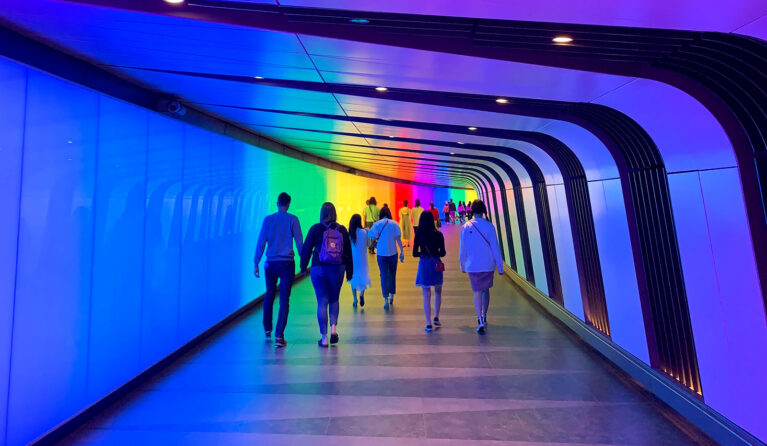
Nikki
39, Bengaluru, India
“I hate labels. However, I will say I’ve been with more women than men. I will fuck a man, but make love to a woman—so whatever that orientation is. I find intelligence, a sense of humour, and sex appeal attractive. Any attraction which hijacks one’s hormones only is unhealthy attraction. Polite society deem people who’re comfortable in their skins as ‘weird’. I’m generally not embarrassed about anything I find attractive.
“Consent is non-negotiable for me, even if it’s the same gender. Some people think it’s okay to come on to people of the same gender. For example, somebody straight thinks it’s okay to come on to somebody who’s gay if they’re the same gender, but that isn’t okay.
“I’m not really on dating apps. I am old fashioned—get drunk at a bar and take someone home. Pre-Corona, of course. Now, I shall leave it up to the universe to make things happen.”
Mansi (name changed)
24, Mumbai, India
“I prefer not to identify, but if I had to, I’d say I’m queer or simply: not heterosexual. A person’s genitalia or even their gender doesn’t determine my attraction to them. What I consider sexually attractive has changed with time. I used to be much less critical of various norms of gender and sexuality and found attractive what other people found attractive or what I thought I should find attractive. Now, with experience in the field of gender and sexuality, I’m certainly not attracted to the same things anymore. For example, I find androgynous bodies fascinating. I wouldn’t have thought like this back in school because I was still thinking in very binary terms. What I find attractive is constantly under revision.
“I think unhealthy desire is a complicated topic. What one considers an unhealthy desire is often a product of various social and legal norms and biases. For example, there are people today who still think of homosexuality as unhealthy. I’m wary of having law or society, which are always in a dance together, determine what I consider healthy or unhealthy attraction. This is not to say that rape or bestiality or pedophilia should not be legislated against. There are also very complex reasons why people feel those unhealthy desires and quite often, that’s because they’re forbidden and sometimes, precisely because they violate another person’s sovereignty.
“I’m polyamorous. I don’t know if I would identify as polyamorous as much as I do identify with the practice of polyamory. I do think identity and identification are not the same thing. I believe in being in ethical relationships; they don’t necessarily have to be formalised. I think in a society that has valorised compulsory monogamy to the extent that ours has, possessiveness and jealousy are what people consider signs of true love. I’m much more attracted to a partnership that’s deeply rooted in an openness to experience, which takes the form of being with multiple people.
“I stumbled across masturbation completely by accident. That being said, I don’t think self-pleasure needs to be centred on one’s genitals.”
“I stumbled across masturbation completely by accident. That being said, I don’t think self-pleasure needs to be centred on one’s genitals. I wonder if our sense of consent has more to do with our sense of body sovereignty and if somebody breached that, how would that make somebody feel? And, then that translates into one’s practice of consent into somebody else’s. As a woman, having to reckon with the idea that my body isn’t mine precedes the formal language of consent.
“Technology has definitely had a profound influence on my sex life. It’s become a way for me to preserve various forms of intimacy. I do find dating apps quite reductive, since they present a very small aspect of a person’s being, if even that, and that’s made to stand for a whole when presented to somebody. They also bring out the worst of our biases. When I used dating apps in London, it took me a while to register a racial bias that I didn’t think I had. One day, I was swiping on Tinder and I was baffled by the fact that I had primarily white men showing up on my feed. The algorithm was giving me more of what I was already leaning towards. If I’m on an app here, I might look out for somebody within my class purview—somebody from a certain elite school or speaking a certain kind of English. It becomes hard to avoid the trappings of one’s own social capital. Although, that being said, the same might happen in real life too. What works for me best is what emerges naturally.”
The most unsettling thing for a human being to do is to deviate from the norm or what society’s expectations dictate. Existing as an ‘outsider’ comes with the risk of decreased equitable access to opportunities and social capital, and yet, there are people who aren’t afraid of questioning the larger status quo and defining their own idea of what’s normal, irrespective of the attendant confusion and backlash. I look back at my time with A and I wonder how different things would be if I’d allowed myself the courage to accept my attraction to another woman as normal, as conventional, and as accepted as the various heterosexual relationships I grew up seeing all around me.




